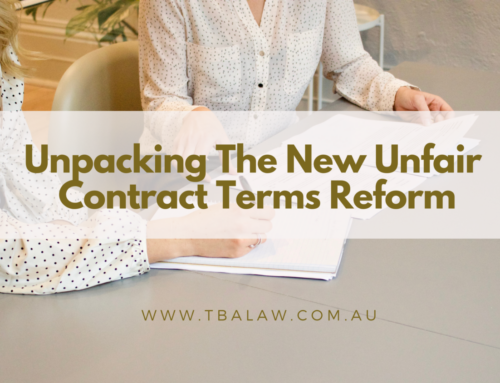Guaranteed? An Introduction to the Australian Consumer Law …
In January 2011, the Australian Consumer Law (or ACL) was born, and with it came nine standard consumer protections that are uniform across Australia. The following article is a brief introduction to the ACL, and looks at the guarantees it provides when purchasing goods. It is the first in a series of articles on consumer protection.
What’s covered by Consumer Guarantees?
The ACL covers the supply of goods to a person or business for their own use (not for re-supply or manufacture) costing $40,000.00 or less, or if the item costs more than $40,000.00, a product that is normally bought for personal or household use or consumption will also be covered.
What are the Consumer Guarantees?
There are nine consumer guarantees required by the ACL that must be complied with. The nine consumer guarantees relating to the sale and purchase of goods are:

- goods are of acceptable quality
- description of goods are accurate
- goods will satisfy any extra promises made
- reasonably fit for purpose
- goods will match the sample or demonstration model or description
- the seller has the right to sell the goods (that’s called clear title)
- the goods wont be repossessed (that’s called undisturbed possession)
- the goods are free of any hidden securities or charges
- manufacturers and importers of goods will take reasonable steps to have spare parts and repairs available
What is a Major Failure?
The ACL distinguishes between a defect that is a ‘major failure’, and a defect that is not a major failure. A major failure occurs when a reasonable consumer would not have purchased the goods had they known about the problem.
What does it mean for me?
If you purchase goods that are not of acceptable quality, you are entitled to have the goods repaired within a reasonable time, replaced to a similar type or value, or be refunded for the item. In the event of a major failure, it is your choice as to whether you have a replacement or are refunded. If the goods can be repaired within a reasonable time, it is not a major failure. This means the supplier can choose whether to offer to repair the item, refund the item price, or replace the item.
Furthermore, if you have suffered any consequential loss, you are entitled to have that refunded.
Some examples:
I purchased a fridge from an appliance store and after only two months the freezer no longer stays cold. The supplier won’t refund my money, is this legal?
No. A new fridge should be expected to last longer than two months before it no longer works. The purchaser would be entitled to a remedy under the Australian Consumer Law. The fridge should be repaired within a reasonable time, replaced, or refunded.
There was a “No Refunds” sign on the counter when I purchased some defective goods. Does this mean when I purchased the item I agreed to this and cannot receive a refund?
No. Signs like this are unlawful. If the defect breached the Consumer Law guarantees it must be repaired, refunded or replaced. If your item contains a ‘major failure’, you are entitled to have that item replaced or refunded under the ACL. Suppliers cannot contract out of the Consumer Law protections, or avoid them with ‘no refund’ signs, so don’t let them try to. If, however, you simply changed your mind, then you are not protected under the Consumer Law guarantees.
I purchased a shirt and the buttons have fallen off due to poor stitching, but the supplier can no longer supply the buttons for the shirt. What can I do?
This would be a major failure, and the supplier should refund your money.
I purchased a small table and placed a crystal vase on it. A month later the leg on the table gave way and the vase broke. Can I be compensated for the broken vase as well as the broken table?
If the broken table leg was a breach of the consumer guarantees, and in many situations it would be a breach, then it is reasonably foreseeable that what had been placed on the table would also sustain damage when the table leg broke. Therefore, you should be compensated for the vase as well as the table.
I bought something second hand. Does this affect my rights under the Consumer Law?
The guarantee of acceptable quality still applies to second hand goods, but the age, price and condition are all relevant factors. If you can inspect the goods before purchase, any defects that should have been noticed, or any hidden defects that the supplier has alerted you to, are not covered by the ACL guarantees. For example, you cannot purchase a second-hand jacket and then demand a refund because the fabric has faded on one arm, and this fading was visible at the time of purchase but you simply didn’t notice.
In conclusion
The above article only touches the surface of the ACL consumer guarantees and is not intended to be comprehensive. If you feel a supplier has breached the ACL and are unwilling to fix the defect, you can seek legal advice.
Stay connected with us for future articles on aspects of the ACL that may be relevant to you.
[maxbutton id=”2″ ]





Leave A Comment